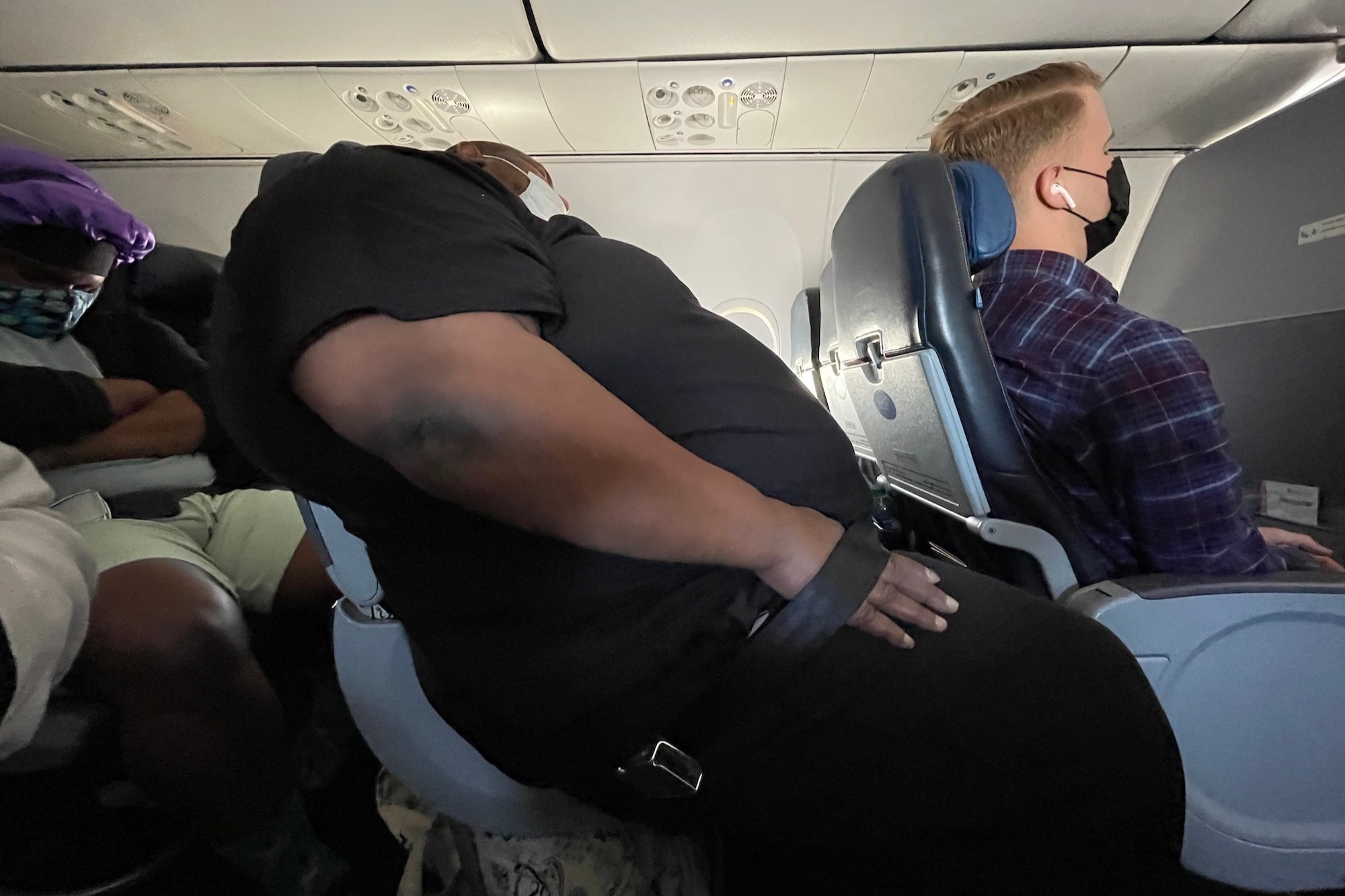Air travel is rarely described as comfortable. Tight seats, long flights, and minimal legroom are common complaints. But for one passenger, a recent trip became almost unbearable when she found herself wedged between two obese seatmates for the duration of her flight. After voicing her frustration to the airline, she unexpectedly received financial compensation — sparking debate online about passenger rights, comfort, and responsibility.
The uncomfortable middle seat
The passenger had been assigned a middle seat — already seen by many as the least desirable spot on a plane. But the situation worsened when two larger individuals took the seats on either side of her.
According to her account, she spent the entire flight pressed tightly against the seatback, unable to use the armrests or shift her body comfortably. Eating, drinking, or even adjusting her position became nearly impossible.
Why she complained
In her formal complaint to the airline, the woman outlined several key issues:
- Loss of personal space: she felt physically restricted throughout the flight.
- Health concerns: sitting in a cramped position for hours caused discomfort and leg numbness.
- Lack of assistance: she argued that cabin crew should have offered a solution, such as relocating her.
Her central point was that she had paid for a standard seat but received far less space than expected.
The airline’s response
Surprisingly, the airline acknowledged her complaint and offered a partial refund as a goodwill gesture. While emphasizing that all passengers have equal rights to fly, the carrier admitted that her seating situation had been unusually uncomfortable and merited compensation.
Comparing common air travel issues
| Issue | Typical passenger experience | Airline response |
|---|---|---|
| Flight delay | Missed connections, wasted time | Meal vouchers, financial refunds |
| Lost baggage | Missing clothing or essentials | Compensation and reimbursement |
| Standard middle seat | Less space, reduced comfort | No compensation |
| This case (middle seat + obese passengers) | Severely restricted space | Unusual – partial refund granted |
The table highlights why this incident drew attention: airlines typically do not compensate passengers for seat discomfort.
Divided public reaction
The story quickly spread online, generating heated discussion. Some praised the airline for recognizing the passenger’s discomfort. Others argued that the real issue lies with shrinking seat sizes as airlines try to maximize profits.
One commenter summed it up: “We shouldn’t blame passengers for their body size. The problem is airlines cramming three adults into a row that simply isn’t wide enough.”
A bigger problem in air travel
Experts say this case underscores growing tensions about comfort and fairness in economy class. Seat width has decreased over the years, even as average body size has increased. For airlines, tighter seating means more revenue per flight. For passengers, it often means frustration and, as in this case, complaints.
Some potential solutions have been suggested:
- Increasing average seat width on long-haul flights.
- Offering flexible pricing based on space requirements.
- Providing more options for passengers willing to pay extra for guaranteed comfort.
So far, most airlines remain reluctant to change, citing cost and logistics.
What this case means going forward
While rare, this compensation sets a precedent. If more passengers begin filing complaints about space issues, airlines may face pressure to rethink their seating policies. At the same time, critics warn that without systemic change, isolated refunds will do little to solve the broader issue.
A reminder about passenger rights
This case highlights the importance of speaking up when air travel conditions fall below expectations. Airlines are not obligated to refund passengers for discomfort, but when complaints are specific and well-documented, they may be more willing to offer compensation to protect their reputation.
For this passenger, the refund did not erase the discomfort of her flight, but it validated her frustration — and reignited a global conversation about what economy air travel should look like in the future.





